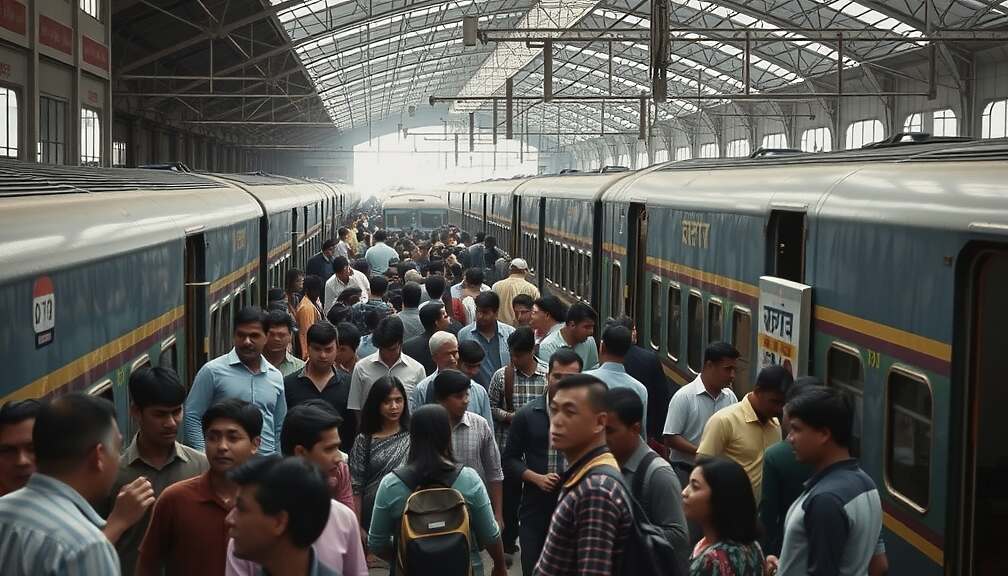German rail operator Deutsche Bahn presented its new timetable for 2026, outlining significant enhancements to its network and services. A core element of the plan is an increased frequency of high-speed rail connections, with 21 cities set to benefit from services running at approximately half-hour intervals from December 2026 – a higher number than ever before. This expansion will increase the network where high-speed trains operate every 30 minutes from 900 to 2,300 kilometers, impacting routes such as those connecting Hamburg, Hannover and Kassel and Erfurt, Halle and Berlin.
To meet the demand on key north-south axes, 14 new express ICE (Intercity-Express) services will be introduced, strengthening connections between Hamburg and Frankfurt (Main) and Berlin and Munich. A new express route between Berlin and Stuttgart, via Nuremberg, will reduce travel time to approximately 4 hours and 45 minutes.
International connectivity also sees improvements, including the launch of a new Eurocity line between Leipzig and Krakow, Poland. Increased direct ICE connections from North Rhine-Westphalia to both Zurich and Chur, Switzerland, are also planned, alongside a new connection for Brig. A through connection from Prague to Copenhagen, via Dresden, Berlin and Hamburg, is scheduled to begin in May 2026, potentially adding up to four daily trains between Hamburg and Copenhagen, seasonally adjusted. Furthermore, four daily ICE connections between Cologne and Antwerp will be introduced from September 2026, providing a new link for Brussels Airport into the ICE network.
To streamline operations and improve reliability, Deutsche Bahn is standardizing departure and arrival stations, intermediate stops and frequency intervals on major ICE lines “where possible”. The aim is to utilize the same ICE train type for each line where feasible, creating a less complex and more stable system that mirrors the principles used in urban rapid transit systems. While this results in some changes to direct connections, Kiel will now receive a consistent two-hour service to Hannover, Frankfurt and Stuttgart.
Deutsche Bahn will also phase out the use of “wing concepts” where trains are split and reassembled at specific stations, due to their propensity for delays. Certain routes with consistently low passenger numbers are being adjusted, with a reduction in service frequency between Leipzig and Nuremberg via Jena, due to economic constraints and rising costs. Passenger loads as low as 10% are impacting the viability of maintaining existing services.
The new ICE L model will enter service, initially between Berlin and Cologne. Following the completion of track renovations, it is planned to extend ICE L operations to Westerland (Sylt) from May 1st, 2026 and later to routes connecting Cologne and Frankfurt to Westerland and Dortmund to Oberstdorf.
Customers will be able to book a wider range of international rail services directly through Deutsche Bahn’s website, including Austrian ÖBB and Swiss SBB long-distance trains, French TGV services and Eurostar tickets. Night train services operated by ÖBB will also be directly available. The aim is to offer tickets from all major neighboring rail operators by the end of 2026.
Significant infrastructure projects continue, including the ongoing renovation of the Hamburg-Berlin railway line (until April 2025), requiring service diversions. Other scheduled works include renovations on the Wupper Valley route between Hagen and Cologne (February-July), between Nuremberg and Passau (February-December) and on the right Rhine line between Cologne and Frankfurt (July-December).
The new routes and services will be available for booking through Deutsche Bahn’s website from October 2024, with tickets available for purchase up to twelve months in advance.












